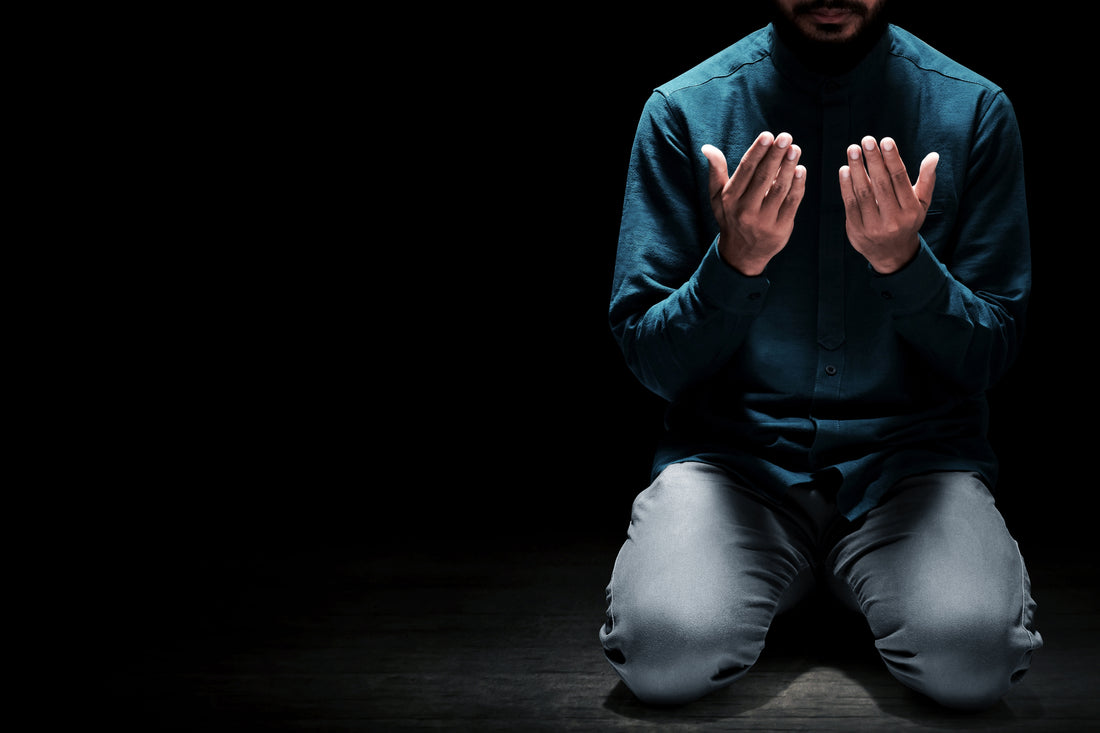How do I wake up for Fajr? Useful tips for waking up on time

The most important things in brief:
- Fajr is the first of the five daily prayers that all Muslims must perform as part of their daily worship of Allah. Since the Fajr prayer is performed before dawn, many Muslims often find it difficult to wake up on time.
- There are some practical tips you can follow to help you wake up on time for Fajr prayers every day, including setting a sincere intention, maintaining a healthy bedtime, and getting help from friends and family members.
- If you're not a morning person, B・SYNC ON supplement contains natural ingredients that are clinically proven to help you wake up in the morning with a better mood and more energy so you can start your day right. Read on to learn more.
introduction
As Muslims, we know that praying five times a day has many benefits, but when it comes to waking up in the early hours of the morning for Fajr prayers, it is a real struggle.

Although it's all too tempting to curl up in a warm and comfortable bed while the rest of the world sleeps, the Fajr prayer is an obligation that all Muslims must perform as part of their worship of Allah - if you miss this important daily prayer, it really is a case of "he who sleeps has lost".
If you are reading this, you are probably looking for an answer to the question: How do I wake up for Fajr?
So if you're feeling guilty about missing Fajr, luckily we have some practical solutions for you that you definitely shouldn't oversleep. Read on for a list of spiritual tips and science-based methods on how to wake up for Fajr so you never miss the morning prayer again.
Set a sincere intention
When it comes to praying Fajr on time, it's all about your intention. It's not enough to just say to yourself, "Insha'Allah, I will get up for Fajr when I can"; you have to be sincere and determined about your intention. Make a sincere prayer to Allah before you go to sleep so that it's easy for you to wake up in the morning and fulfill your duty as a Muslim.
If you go to sleep each night with the conscious intention of waking up for Fajr, your mind and body will become conditioned to wake up at a specific time, so that eventually it will become second nature to you - setting a mental alarm, so to speak, before you go to sleep.
Take a nap during the day
If you feel tired during the day after waking up for Fajr, it is perfectly normal to feel this way, especially as your body adjusts to your new routine. It may be helpful to take a nap during the day to recover if your schedule allows.
Napping is a Sunnah and has many health benefits if you do it right. Here's how to do it right:
- Sleep during the afternoon slump (around 1 to 2 p.m.), when energy levels naturally drop.
- Don't sleep for more than 20 minutes to avoid falling into a deep sleep that will make you feel groggy.
- Don't take a nap too late in the day, as this can disrupt your natural sleep cycle.
Remember why you are doing it
Fajr prayer is about more than just the physical act. It is connected to fulfilling your duty as a Muslim, and when you realize the importance of this act, it becomes even more important.

See prayer as an opportunity to talk to Allah and develop your relationship with Him. Use it as a time to reflect on your blessings, ask for forgiveness, and confess your fears and desires, knowing that Allah hears everything and can solve your problems.
Above all, remember the rewards that come with praying Fajr, especially being under Allah's protection throughout the day, preparing you for a productive day, and relieving you of the stresses of daily life.
Follow a good bedtime routine
A good night's sleep is crucial to waking up early and feeling energized, and that starts with a good bedtime routine. The human mind is governed by habits, so following certain Islamic rituals before bed can help you subconsciously prepare for sleep. These include:
- Perform Wudhu before going to bed
- Let's pray
- Practice gratitude
- Reading suras from the Koran
- Reciting Ayatul Kursi and the four Quls
- Performing Dhikr to Allah
In addition, it has been scientifically proven that good sleep hygiene increases the chances of restful sleep and thus reduces fatigue, improves mental and physical well-being and increases productivity. Good sleep hygiene consists of:
- Go to sleep and wake up at the same time every day
- Get 7-9 hours of sleep
- Avoid caffeine at least six hours before bedtime
- Eat a light meal at least three hours before going to bed
- Avoid artificial light at least one hour before going to bed
- Keep your bedroom dark, quiet and cool
Stay consistent
Getting up early isn't something you can train yourself to do overnight, but it's important that you stay consistent as you teach and reinforce this behavior.
There will be days when you won't be able to get up on time; it's important that you don't be so hard on yourself in those cases.
Instead, pray the Fajr prayer as soon as you wake up and let it strengthen your resolve to wake up on time the next day.
Take B・SYNC
Let's face it: not everyone is a morning person. For some of us, getting up early in the morning and starting the day with energy is a dream. If that's you, then B・SYNC ON supplements could solve your problem.

Developed by doctors and scientists, these supplements are specifically designed for people who constantly struggle to get out of bed in the morning. With just four natural ingredients, caffeine, zinc, and vitamins B5 and B12, B・SYNC ON is the world's first clinically proven supplement to help night owls wake up with ease and energy.
B・SYNC ON is a unique supplement because it is designed to work with your waking phase rather than your sleep cycle. You should take a single pill before bedtime; the patented technology delays the release of the ingredients for about seven hours, so you can wake up feeling alert and in a good mood.
Start your day the right way and buy B・SYNC ON supplements today .
Don't press the snooze button

As tempting as it is to hit the snooze button when the Fajr alarm goes off, it's a slippery slope. Telling yourself "five more minutes" can easily turn into an hours-long snoozefest, and before you know it, the time for Fajr prayers is long past.
To counteract this, move your alarm clock or phone to the other side of your bedroom. That way, you'll have no choice but to get out of bed to turn off the alarm, and the hard part is over. This is the ultimate life hack for waking up when you don't feel like it.
Here's a free bonus tip: Do wudhu with cold water instead of warm water before praying Fajr; it will do wonders for waking up feeling energized.
Try positive reinforcement

Positive reinforcement is a great way to ingrain a new habit into your psyche, especially if the behavior is difficult to perform. You'll find it much easier to wake up on time for Fajr if you reward yourself every time you do it.
By giving yourself small personal rewards, such as a delicious breakfast or a cup of warm coffee, you can train yourself to always wake up on time because you have something to look forward to.
Ask friends or family members to wake you up
If you're a heavy sleeper, an alarm clock is often not enough to wake you from your slumber. Sometimes it takes a team effort to help you get up until your body adjusts to your new sleep and wake times.
Asking friends or family members to wake you up in the morning is an effective strategy to help you pray Fajr on time. On the days when you wake up first, if you help others by waking them up to pray, you will be doubly rewarded.







